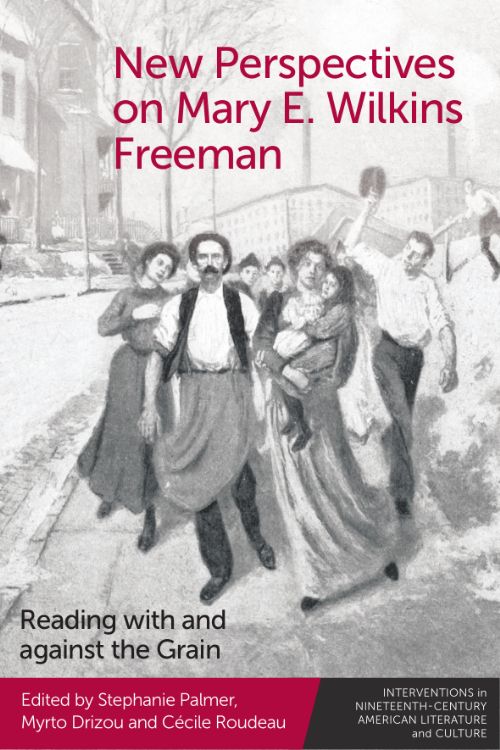New research on Freeman’s fiction that challenges and expands earlier feminist readings of the female realm
- Contextualizes key developments in Freeman criticism since 1991
- Moves beyond an analysis of the short stories for which Freeman is best known to examine her novels Pembroke (1894), Madelon (1896), and The Portion of Labor (1901); stories for youths and uncollected stories; and post-1902 fiction from her late career
- Updates approaches to Freeman by considering ecocriticism, race, labor and class, transnationalism
- Reconsiders periodization: Freeman is read as a modernist and a World War One writer whose long, evolving career questions critical readings of her work within the confines of turn-of-the-century realism and regionalism
- Raises important questions about single-author scholarship and argues for new critical views that go beyond the single author
- Involves a transatlantic array of scholars (based in the US, the UK, Finland, France, Turkey, Lithuania) at different stages of their career—from some long-time specialists of Freeman to some international PhD students
Freeman is best known today for her short regionalist fiction. Recently, Freeman studies have taken new turns including ecocriticism, trauma studies, the Gothic, and queer theory. The essay collection pushes these developments further. Contributors aim at revisiting and going beyond Freeman’s regionalism. They challenge earlier feminist readings of the female realm by arguing that her short fiction and novels depict women and girls as violent and criminal, suffocating as well as nurturing; they bring to light questions of race and ethnicity that have been conspicuously absent from scholarship on Freeman, as well as issues of class. Because questions of women’s work are central to Freeman’s oeuvre, this collection discusses Freeman’s acumen as a businesswoman herself, a participant as well as a castigator of turn-of-the-century US capitalism. Finally, essays reconsider the periodization of Freeman by exploring her little acknowledged post-1902 and therefore post-marriage fiction—her war stories and her urban stories.
About the Authors
Stephanie Palmer is Senior Lecturer of Nineteenth-Century American Literature at Nottingham Trent University. She has published on regionalism, social class, and transatlanticism. Her books are Transatlantic Footholds: Turn-of-the-Century American Women Writers and British Reviewers (Routledge, 2020) and Together by Accident: American Local Color Literature and the Middle Class (Lexington Books, 2009). Along with Myrto Drizou and Cécile Roudeau, she inaugurated the Mary E. Wilkins Freeman Society.
Myrto Drizou is an Assistant Professor of English at Boğaziçi University in Turkey, where she teaches American and transatlantic literature. She received her PhD in Comparative Literature from the State University of New York at Buffalo and has previously taught at Valdosta State University and the University of Illinois at Springfield in the US. She is one of the founding members of the Mary E. Wilkins Freeman Society and has contributed the Introduction to the new edition of Freeman’s The Wind in the Rose-bush and Other Stories of the Supernatural (Hastings College P, 2015). She has published on numerous fin-de-siècle American authors, including Henry Adams, Theodore Dreiser, Frank Norris, and Edith Wharton. She is editor of the volume Edith Wharton for the series Critical Insights (Salem P, 2017) and serves as associate editor of the Edith Wharton Review. Her work on Wharton has further appeared in The New Edith Wharton Studies (Cambridge UP, 2019); Gothic Landscapes: Changing Eras, Changing Cultures, Changing Anxieties (Palgrave Macmillan); Critical Insights: American Writers in Exile (Salem P); and 49th Parallel: An Interdisciplinary Journal of North American Studies. She is also editor of a special issue on the global dimensions of American literary naturalism, which appeared in the New Centennial Review, and is currently working on a study of the archaeological imagination of late nineteenth- and early twentieth-century American female writers.
Cécile Roudeau is Professor of American Literature at Université Paris Cité. Her research focuses on the articulation between literature and politics in the long nineteenth century. Her first book, La Nouvelle-Angleterre: Politique d’une écriture (Sorbonne UP, 2012) read New England regionalism (Jewett and Freeman in particular) as a political attempt to repartition the sensible in the US turn to empire. Roudeau is also the author of the first translation of Jewett’s The Country of the Pointed Firs into French (2004/2022). Her research has appeared in ESQ, Leviathan,William James Studies, Revue Française d’Études Américaines, and European Journal of American Studies. She is working on a book project provisionally entitled “Beyond Stateless Literature: Practices of Democratic Power in Nineteenth-Century US Literature.”
https://edinburghuniversitypress.com/book-new-perspectives-on-mary-e-wilkins-freeman.html?#

